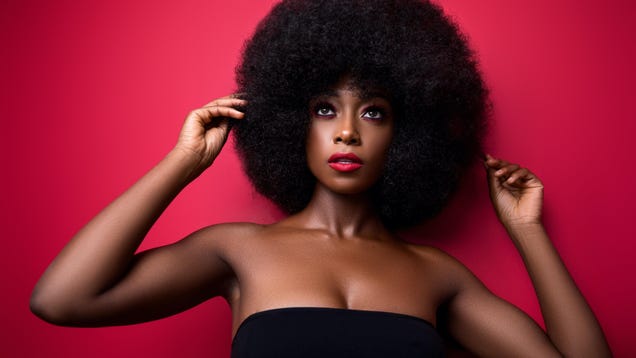By Claretta Bellamy
A majority of Black women say they feel they have to change their hair just to be taken seriously for job opportunities and in professional settings, according to a survey commissioned by LinkedIn and Dove.
Approximately 1,000 Black women ages 25 to 64, both part-time and full-time employees, took part in the CROWN Research Study.
Some 66% of them said they had changed their hair for a job interview to lessen the chances of being passed over due to hair discrimination. Twenty-five percent of Black women said they believed they were denied a job interview because of their hair.
When looking at the data, said Andrew McCaskill, a senior director of global communications and career expert for LinkedIn, workplaces need “to work better” for women in general, but especially Black women. This is particularly pertinent now that more Black women are opting to wear their natural hair instead of straightening their hair with chemical relaxers, which reportedly can increase the risk of developing uterine cancer.
Once they have landed their jobs, Black women with textured hair are twice as likely to experience microaggressions in the workplace compared to Black women with straight hair. And 25% of Black women ages 25 to 34 surveyed said they were sent home from work because of their hair.
Black women and young Black professionals have shared conversations about their own hair journey through Dove’s #BlackHairIsProfessional campaign which, McCaskill said, provides a safe space to do so. In one LinkedIn post, a Black woman shared a screenshot of a message she received online criticizing her natural hair — saying she needs to “tone it down and make it flat” while also labeling the woman’s hair as “scary.” The woman shared her own selfie wearing her natural hair and said instead, she decided to “TURN IT UP & PUFF IT OUT!”
Experiencing hair discrimination at an early point in a Black professional’s career can cause an automatic “disconnect of belonging” and a loss of confidence in their skills, McCaskill said. One example he cited is a young Black worker not getting the anticipated reaction for their work because the manager “is focused on something like their hair,” he said.
“What we know is that, as you get more mature in your career, you’re typically also more confident in your skills that you have and what you bring to the table,” McCaskill said. “For younger folks, these types of aggressions and microaggressions can cause real angst for them in terms of even to the point of doubting their skills and saying, ‘I can’t do this anymore.’”
Efforts to advance legislation have been implemented on a state and national level. The House passed the Crown Act last March to ban hair-related discrimination. California was also the first state to ban hair discrimination in 2019, with a list of other states following suit, including Massachusetts, which passed its anti-hair discrimination law last July.
Companies can foster belonging among Black employees by “giving people space for their authenticity at work and being intentional about it,” McCaskill said. And most importantly, they need to “believe Black women when they have the bravery and courage to say that they are experiencing microaggressions and or hair discrimination at work.”
LinkedIn, McCaskill said, provides diversity, equity and inclusion courses on topics such as uncovering unconscious bias in recruiting and interviewing. But he also said Black professionals should protect their own identity and expression.
“If your authentic self and your authentic hair are not welcome in that space, that’s probably not a space where you will be able to thrive anyway, he said.”

